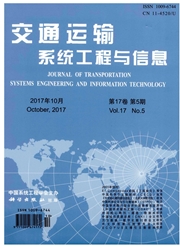

 中文摘要:
中文摘要:
为了考查突发公共卫生事件后公众的出游意愿,在MGB模型的基础上,构建影响出游意愿各自因素之间关系的概念模型.提出了10个假设,揭示突发公共卫生事件后各因素对出游意愿影响的作用机理,运用回归分析和路径分析方法,对所收集到的有效样本数据进行实证研究.研究显示,出游态度、感知行为控制和积极的预期情感对出游欲望有显著的正向影响;出游欲望和非药物干预行为对出游意愿有显著的正向影响;消极的预期情感对出游欲望有显著的负向影响,对突发公共卫生事件的认知使出游者采取非药物干预的行为也有明显的正向影响.
 英文摘要:
英文摘要:
Based on the model of goal-directed behavior, a conceptual model is set up to investigate travelers' intention after public health emergency. This paper raises 10 hypotheses, and finally reveals the mechanism of action after public health emergency. At the same time, it carries out the empirical analysis for samples with regression analysis and path analysis. The results show that attitude, perceived behavior control and positive anticipated emotion have a positive effect toward travel desire, and travel desire and non-pharmaceutical interventions have a positive effect to travel intention, but the negative anticipated emotion has a negative effect to travel intention. The cognition toward public health emergency has a positive effect to the behavior of non-pharmaceutical interventions.
 同期刊论文项目
同期刊论文项目
 同项目期刊论文
同项目期刊论文
 Multichannel Integration Quality, Online Perceived Value and Online Purchase Intention: a Perspectiv
Multichannel Integration Quality, Online Perceived Value and Online Purchase Intention: a Perspectiv 期刊信息
期刊信息
